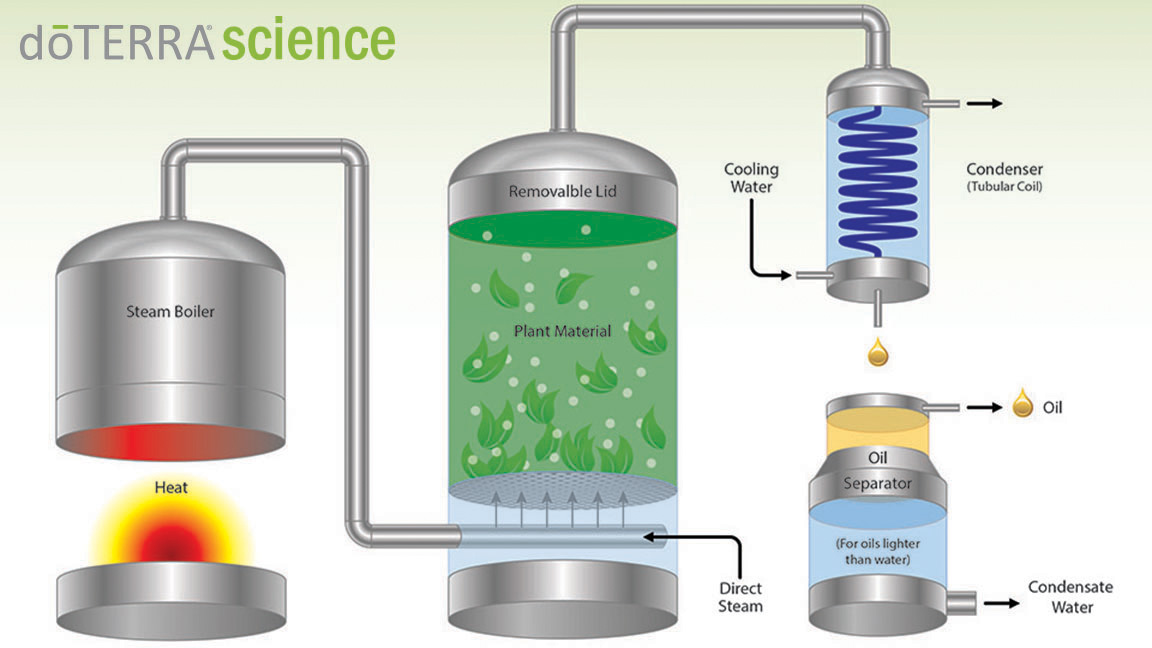Origin: a Latin derivative
meaning "Gift of the Earth."
Steam Distillation

The most common method for collecting essential oils is steam distillation. This is a delicate, time-intensive process. The benefit of steam distillation is that it yields oils that are exceptionally clean and pure. It also allows for collection of temperature-sensitive compounds that would be damaged or altered by other collection processes requiring higher temperatures.
In steam distillation, water is boiled and the resulting steam passes through the plant material. The steam carries the volatile aromatic compounds from the plant into a collecting tube, where the steam is cooled and condensed back into water. Because essential oils are lipid soluble, they are easily separated from the water.
Steam distillation requires careful control of time, temperature, and pressure. These conditions can be fine-tuned for each different plant type.
- Temperatures typically are between 140–212 degrees Fahrenheit.
- Pressure typically is between 15 PSI and 20 PSI.
- Time can range from a few hours to several days to fully distill.





